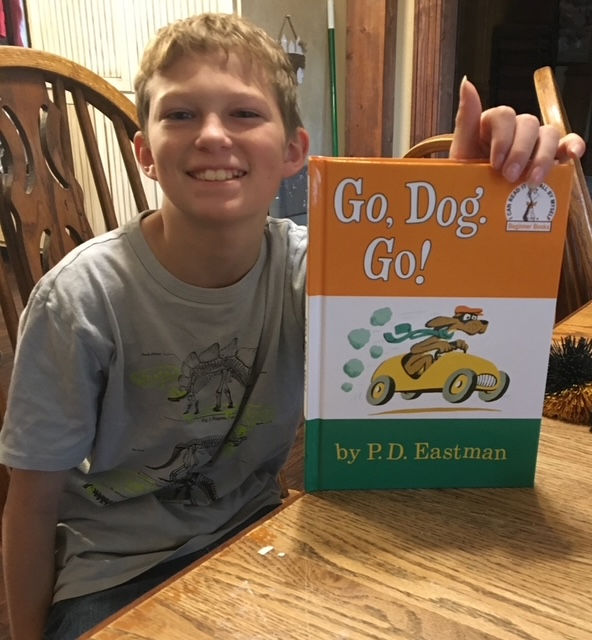How a Brain-Based Program Changed Our Family
- cjh

- May 4, 2025
- 2 min read
I’ll never forget the intense worry I carried during those early years. My youngest son wanted so badly to learn to read like his four older siblings—but no matter how hard he tried, it was a constant struggle. He couldn’t remember the alphabet from one day to the next, he would cover one eye as he read or lay his head sideways, and would start yawning almost immediately after we started lessons.

It didn’t make sense. He was bright, curious, and motivated. But something wasn’t clicking. Letters looked like a foreign language. Instructions were overwhelming. He would have intense emotional meltdowns over the smallest things. He couldn’t multi-task, follow multi-step directions, or stay focused for long.
Eventually, it was suggested that he had dyslexia and eye tracking issues. I got the impression that was supposed to explain everything, but instead, it left us with even more questions.
We tried everything—phonics programs, specialized reading curriculums, therapies. We spent thousands of dollars and poured in countless hours. We had moderate successes here and there. But despite all the effort, he kept falling further behind. His confidence was crumbling, and my heart broke as I watched him try so hard without the results we were looking for.
Then, I discovered something that changed everything: a neurodevelopmental approach.
At a homeschooling conference, I heard Linda Kane speak about developmental delays and the brain’s ability to grow stronger connections with the right input. As she described common symptoms of retained primitive reflexes and inefficient brain pathways, I found myself mentally checking every box. This wasn’t just about reading—it was about how his brain was wired to process and respond to the world.
For the first time, I saw hope.
We began working through a brain-based developmental program—one that focused on the root issues, not just the surface symptoms. It wasn’t a quick fix, but it was powerful. Slowly and surely, things began to shift.
My son began to read. His memory improved. He could follow instructions, manage transitions, and even start multitasking. I realized that the meltdowns had gone away almost without me realizing it.
The transformation we witnessed was nothing short of amazing. Not just academically, but emotionally and relationally. We were no longer stuck in survival mode. We could breathe. We could connect. We could celebrate his wins.
This experience changed more than just my son’s life—it changed mine. It became the foundation for BrainTree NeuroGrowth, and the reason I’m now so passionate about helping other families uncover the root causes behind their child’s struggles.
If your child is struggling and you feel like you’ve tried everything, I want you to know: you are not alone—and there is hope.
A brain-based program changed our family. It might change yours, too.
Curious about neurodevelopmental assessments or how BrainTree NeuroGrowth can help? Contact us here to learn more



Comments